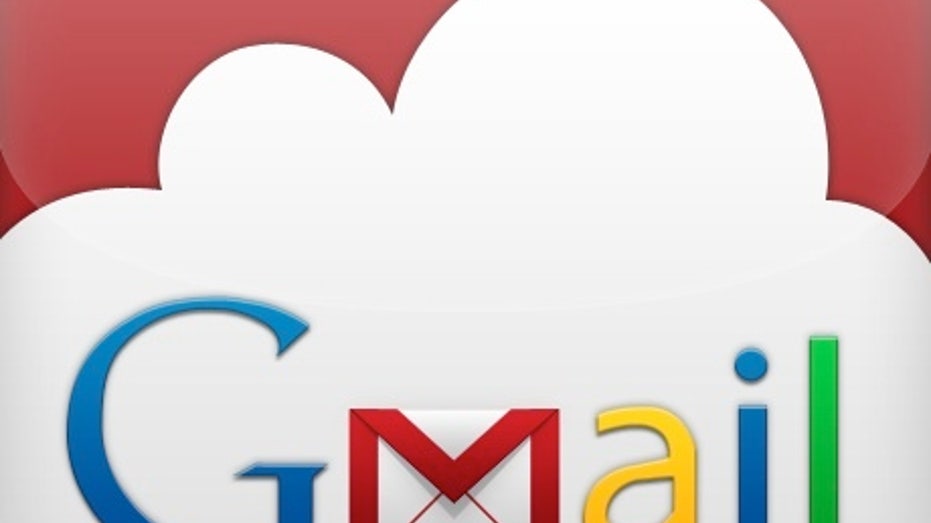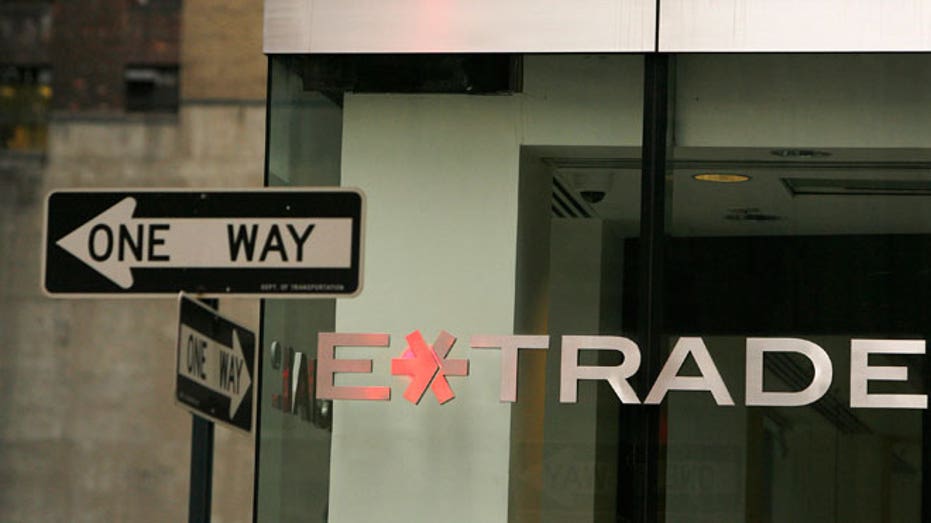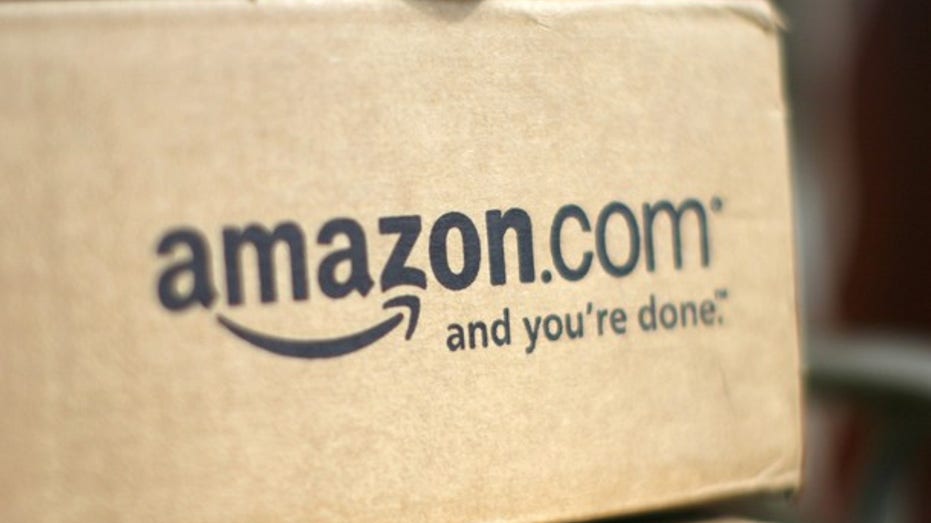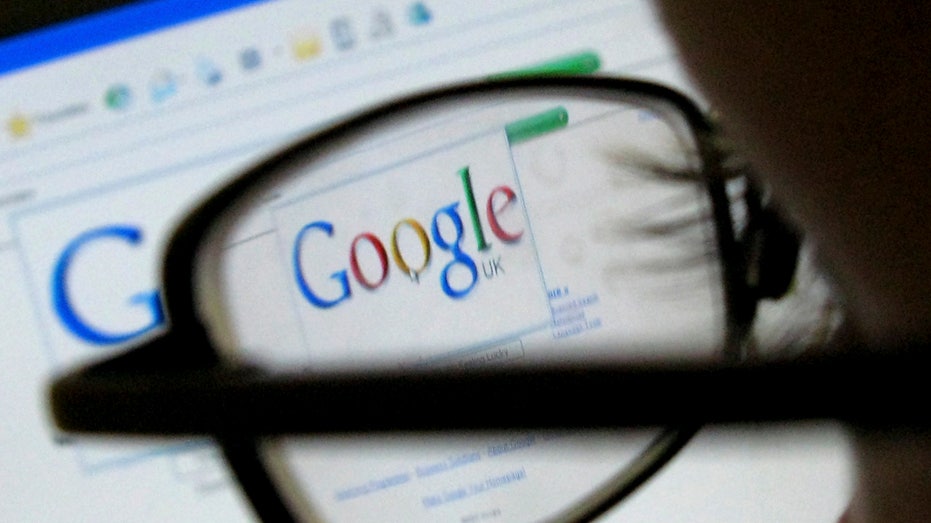Happy Birthday Internet: 25 Years of Milestones
When the Web was born 25 years ago this week, it opened doors for brilliant technological minds and drove innovation and advancement that forever altered humanity.
Today, a quarter of the world's population is on the Internet -- a number that grows every day as accessibility improves.
"The Web is humanity connected," said Anne Jellema, CEO of the World Wide Web Foundation. "Twenty-five years since the birth of the Web, we’re only just beginning to scratch the surface of the social benefits [it] can deliver."
However, before the cloud became dinner table conversation and mobile phones evolved into extensions of human hands, the Web faced a rollercoaster adolescence.
Here are some of the Web’s lowest, and most shining, moments.
1. The Web’s Birth

Around the year 1990, the World Wide Web was born, the brainchild of British computer scientist Tim Berners-Lee who first proposed it in March 1989.
The inventor on Wednesday renewed his call for an Internet that is open, global, accessible and free of censorship. He promoted a new petition dubbed the “Web We Want,” urging “freedom of speech and belief and freedom from want and fear.”
In the early 1980's the term Silicon Valley was coined for the region outside of San Francisco where early tech companies flocked and launched innovative products. While many other tech hubs have since emerged, Silicon Valley remains a driving force of technological advancement, housing some of the world's biggest tech companies.
2. AOL: You've Got Mail

While AOL (NYSE:AOL) today serves as a multibillion-dollar media conglomerate, it got its start in the early 1990s as a “walled garden” software ecosystem that users had to access through a dial-up connection -- a long cord connecting the computer to the public switched telephone network.
At its peak, AOL had 30 million members as part of the enclosed subscription-based community, and in that respect it played a key role in shaping the Internet and giving Millenials their first taste of what would eventually become the high-speed broadband Internet we know today.
AOL went public in 1992 and is now worth $3.3 billion by market cap.
3. E-mail

Since e-mail's invention in 1993, it has become a powerful communication tool. An overwhelming majority of e-mail traffic now comes from businesses, which account for more than 100 billion emails sent and received every day.
In 1998, Tom Hanks and Meg Ryan starred in the romantic comedy “You've Got Mail,” a love story of two people who built a relationship through e-mail, which marked one of the first times the Internet and e-mail played a key role in influencing pop culture.
As of the end of 2013 there were an estimated 3.9 billion global e-mail accounts, a number tech market research firm Radicati predicts will grow to 4.9 billion by the end of 2017.
Google’s (NASDAQ:GOOG) Gmail became the world’s biggest e-mail service in 2012 with more than 425 million active users worldwide.
4. Online Trading

Prior to the advent of the Internet, stockbrokers actually had to place an order over the phone and use ticker tape to monitor stock prices. Shudder.
Today, trades occur instantaneously via the Internet, and there are even robots that conduct high-speed trades to the tune of millions a second. What’s more, the Internet has enabled retail traders to more easily get into the game, enabling them to use online brokers such as E*Trade (NASDAQ:ETFC) to pick their own stocks and manage their portfolios.
Online trading was born in 1994 when Aufhauser & Co., later acquired by TD Ameritrade (NASDAQ:AMTD), became the first brokerage to offer online trading via its “WealthWEB” platform.
5. Online Shopping

In 1994 and 1995, the founding of e-commerce giant Amazon.com (NASDAQ:AMZN) and online marketplace eBay (NASDAQ:EBAY) forever changed the way consumers would eventually shop for anything from electronics to clothing.
The term “Cyber Monday,” the first Monday after Black Friday weekend, was coined in 2005 by Shop.org as the working population began scouring the Internet for holiday deals.
In 2013, online sales on Cyber Monday hit a record high, surging 20% to almost $2 billion, according to comScore. In fact, online shopping has become so popular, a late-season surge during the 2013 holiday caused a number of packages delivered through Amazon and by FedEx (NYSE:FDX) to be delayed until after Christmas.
6. Google.com

In September of 1997, Google.com was registered as a domain by startup whiz kids Larry Page and Sergey Brin from Stanford University.
Named after the word “googol,” a mathematical term for the number represented by the numeral 1 followed by 100 zeroes, Google would go on to become the world’s largest search engine and a hub for innovation.
In 2004, Google began trading at $85 a share. In 2006, the word “Google” was added to the dictionary. And today, shares of Google are valued at $1,207.30 each, putting the company's market cap at a whopping $400 billion.
7. Pets.com & Dotcom Bubble

Pets.com is one of the most well-known Internet companies to flop in 2000 when the Internet bubble burst. The online pet food and supply company failed in November 2000, just nine months after its IPO, when it lost $147 million and failed to raise more money from investors.
The dotcom bubble lasted from 1997 through 2000 following an Internet boom in the mid-1990s and several tech IPOs, including the food delivery service Webvan.com, which had its market debut in the summer of 1999 only to fail two years later. EToys.com had the same lifespan.
The crash rattled the markets heading into the 2000's and taught investors to be wary of companies that grow too fast without solid financial backing and operational structure.
There are new fears that a second dotcom bubble is brewing with social networking companies like Facebook, LinkedIn and Twitter. However, they have thrived so far.
8. Social Networking

In 2004, the second wave of the Internet’s evolution began with the emergence of social networking companies.
With the founding of LinkedIn and Myspace in 2003, consumers for the first time began openly sharing private information about themselves over the Internet. Today, this data is coveted among next-generation tech companies, which make money by selling targeted ads to brands using the personal information provided willingly by their users.
LinkedIn (NASDAQ:LNKD) became one of the first social stocks to go public in 2011 and today is valued at close to $24 billion. Facebook (NASDAQ:FB) and Twitter (NYSE:TWTR) are among the many that have followed.
9. The iPhone

When Apple (NASDAQ:AAPL) CEO Steve Jobs introduced the first-generation iPhone in 2003, consumers were quick to covet its touchscreen and palm-sized computer functionality.
Within a year it became hip to have a smartphone. It has since become a cultural necessity.
The iPhone followed several less-developed predecessors, including a BlackBerry pager launched in 1999 that could receive push email. However, once the iPhone was born, the smartphone market took off with rivals from Microsoft (NASDAQ:MSFT) to Samsung flooding the market.
Smartphone penetration in the U.S. today sits at 60%.
10. Cyber Attacks

One of the biggest headaches of the Internet has been its use in crime and the industry’s inability to keep pace with its advancement.
Hackers and thieves have stolen billions of dollars and hundreds of millions of identities through phishing and other schemes. They’ve used DDoS attacks to bring down major corporate sites and have snuck onto secure systems to nab secret state and corporate data.
In 2012, Wall Street was served a reality check when a number of attacks took the sites of major banks including Bank of America (NYSE:BAC), JPMorgan Chase (NYSE:JPM) and Wells Fargo (NYSE:WFC) temporarily offline. A number of high-profile attacks since then, notably Target (NYSE:TGT), have triggered Washington to act, and it currently is considering several proposals that would improve the nation’s cyber defenses.
11. Arab Spring

Among the Internet’s greatest achievements is its ability to enable people to communicate efficiently and on a global scale. This in late 2010 triggered a wave of social movements across the Middle East in what has become known as the Arab Spring.
Young revolutionaries with repressive governments have rallied other likeminded individuals to revolt on a massive scale against authoritarian regimes. This led to the overthrow of long-time commander Hosni Mubarak in 2011, and similar movements are now occurring across the world.
In Venezuela, the hashtag #16FVnzlaEnlaCalleNicolasPaElConoTeVas has gained steam and is now a hub for protest-related information- and picture-sharing.
12. NSA & Wikileaks

With the Internet’s greatest attributes also comes harsh criticism over its role in overreach and privacy. In a post 9/11 era that requires the government to use extreme measures to protect U.S. borders, documents provided by Wikileaks and rogue former NSA contractor Edward Snowden have shined light on the U.S. National Security Agency’s intrusive monitoring tactics.
Via Skype interview earlier this week from his asylum at the Ecuadorian embassy in London, Wikileaks founder Julian Assange told South by Southwest festival attendees that the NSA has grown to be a “rogue agency.” Washington has defended its actions.
This has sparked Silicon Valley to be more transparent about the information companies like Facebook, Google and Yahoo (NASDAQ:YHOO) share with the government.
13. The Cloud

Oh the elusive cloud. Cloud computing is a new type of computing that enables data to be stored in a digital network accessible from any Internet-enabled machine. This has given way to massive data centers capable of processing and storing unfathomable amounts of data.
Over the last few years, major companies began investing in their cloud operations. It has become an invaluable service for companies looking to stay competitive in an increasingly mobile world.
The cloud and big data also played a crucial role in the development of IBM’s Watson cognitive computer, which introduced to the world to a new type of intelligent computing capable of competing with the best human minds.
14. Bitcoin

The Internet in its most recent form has given birth to new digital, cryptocurrencies such as Bitcoin that are virtually untraceable and for now, unregulated. Digital currency, which can be purchased using traditional money, has been touted as the future of payment.
However, it still has a fair share of flaws to work out. Two weeks ago Mt. Gox, formally Bitcoin’s biggest exchange, filed for bankruptcy after admitting to losing $409 million worth of investor money to a multi-year scheme.
Yet, several online retailers now accept the digital currency, including Overstock.com, which earlier this month surpassed $1 million in Bitcoin purchases. The online retailer also attributed a spike in new users to the untraceable currency.
15. The Internet of Things

Over the next few years, the so-called Internet of Things and wearable computing are going to make digital waves. Tech experts foresee a future where everything a person does – from checking their cholesterol to locking the doors to their home -- is tied to the web.
From robots that can think creatively to cars that can drive themselves, the Internet is an adolescent on the cusp of maturing into adulthood. Technological advancement has only just touched the surface of what is to come.



















